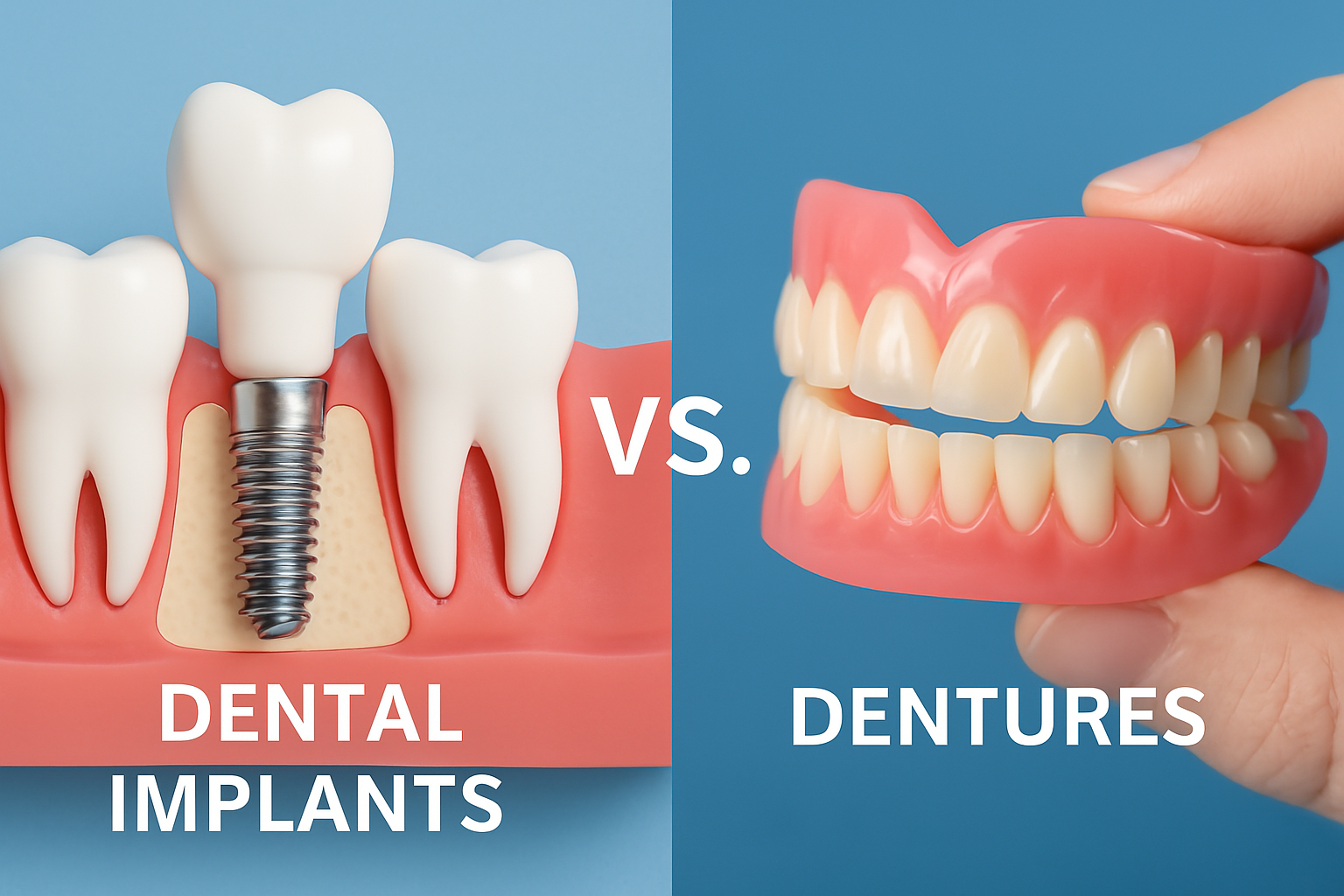Dental Implants vs. Dentures: A Cost-Effective Guide to Tooth Replacement

Choosing between dental implants and dentures is a significant decision that impacts not only your oral health but also your financial planning. Both options serve the purpose of replacing missing teeth, yet they differ considerably in terms of cost, longevity, and overall value. Understanding these differences is crucial for making an informed choice that aligns with your dental health goals and budgetary constraints.
Dental Implants vs. Dentures: A Comprehensive Cost Comparison
When it comes to replacing missing teeth, dental implants and dentures are two of the most popular options available. Each has its own set of advantages and disadvantages, and one of the most significant factors that patients consider is the cost. Understanding the financial implications of each option is crucial for making an informed decision that aligns with both your dental needs and budget.
Dental implants are often regarded as the gold standard for tooth replacement due to their durability and natural appearance. They consist of a titanium post that is surgically inserted into the jawbone, acting as a root for the replacement tooth. This post fuses with the bone over time, providing a stable foundation for a crown, bridge, or denture. The cost of dental implants can vary widely depending on several factors, including the number of implants needed, the type of restoration, and the geographical location of the dental practice. On average, a single dental implant can cost anywhere from $3,000 to $5,000. This price typically includes the implant post, abutment, and crown. However, additional procedures such as bone grafting or sinus lifts, which may be necessary for patients with insufficient bone density, can increase the overall cost.
In contrast, dentures are a more traditional and often more affordable option for tooth replacement. They are removable appliances that can replace a few missing teeth (partial dentures) or an entire arch (full dentures). The cost of dentures is generally lower than that of dental implants, with prices ranging from $600 to $3,000 for a complete set. This cost includes the initial fitting and adjustments, but it is important to note that dentures may require periodic relining or replacement over time due to changes in the jawbone and gum tissue. These additional costs can add up, making dentures a less cost-effective solution in the long run.
Long-term Financial Benefits of Dental Implants
While the initial cost of dental implants is higher, they offer several long-term financial benefits that can make them a more economical choice over time. Implants are designed to last a lifetime with proper care, reducing the need for frequent replacements or adjustments. They also help preserve the jawbone by stimulating bone growth, which can prevent the bone loss that often occurs with dentures. This preservation of bone structure not only maintains facial aesthetics but also eliminates the need for costly bone grafting procedures in the future.
On the other hand, dentures, while less expensive upfront, may incur additional costs over time. The need for regular adjustments, relining, and eventual replacement can add to the overall expense. Additionally, dentures do not provide the same level of functionality as dental implants. They can slip or shift during eating or speaking, which may require the use of adhesives or other stabilizing products, further increasing the cost.
Insurance Coverage Considerations
Insurance coverage is another important consideration when comparing the costs of dental implants and dentures. Many dental insurance plans cover a portion of the cost of dentures, but coverage for dental implants is often limited or excluded altogether. However, some insurance plans are beginning to recognize the long-term benefits of implants and may offer partial coverage. It is essential to review your insurance policy and discuss your options with your dental provider to understand what is covered and what out-of-pocket expenses you may incur.
Conclusion
Ultimately, the decision between dental implants and dentures should be based on a comprehensive evaluation of your dental health, lifestyle, and financial situation. Consulting with a qualified dental professional can provide valuable insights into the benefits and drawbacks of each option, helping you make an informed choice that aligns with your long-term dental health goals. Whether you opt for the permanence and stability of dental implants or the affordability and convenience of dentures, restoring your smile is an investment in your overall well-being and quality of life.




